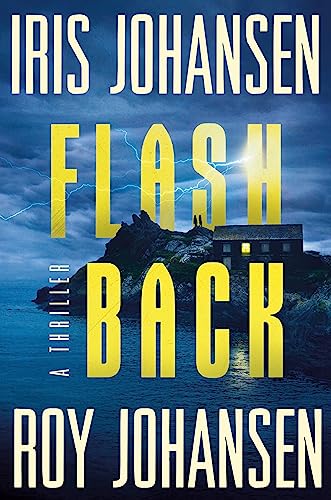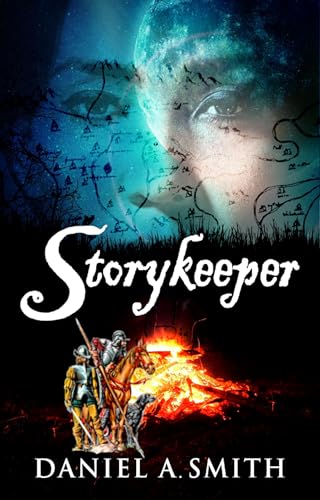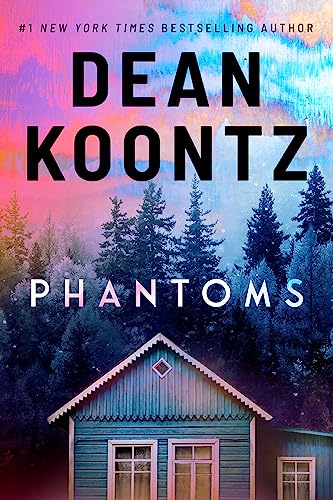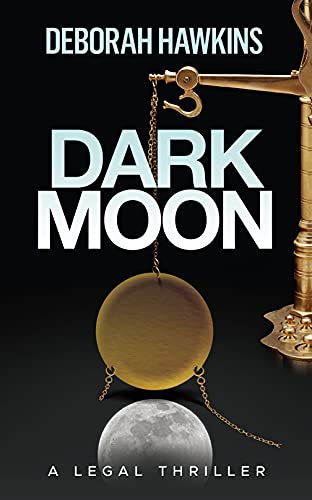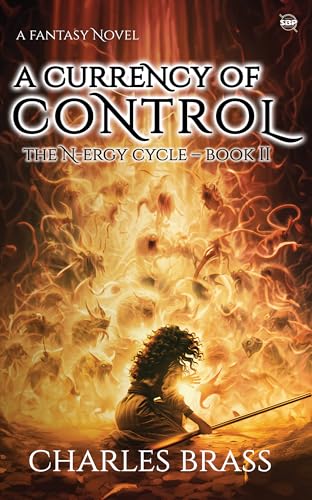On Friday we announced that Ed Baldwin’s The Devil On Chardonnay is our Thriller of the Week and the sponsor of thousands of great bargains in the thriller, mystery, and suspense categories: over 200 free titles, over 600 quality 99-centers, and thousands more that you can read for free through the Kindle Lending Library if you have Amazon Prime!
Now we’re back to offer our weekly free Thriller excerpt:
The Devil On Chardonnay (Boyd Chailland)
by Ed Baldwin
The second thriller in the Boyd Chailland series.
Boyd Chailland evolved after his adventure in The Other Pilot. He took a beating in that tale, and he’s wary. Yet, he needs action; more action than just flying high performance fighters and training to be in the first wave in the next war. When General Ferguson shows up at Boyd’s wing commander’s office with a Top Secret assignment, he takes it without asking what it is. It’s an international thrill ride of bad actors and close calls.
Some people died on an isolated island in the Indian Ocean after developing a secret vaccine for the world’s most deadly virus; Ebola. Boyd is the team leader to find out who and why. What a team it is; Colonel Joe Smith, shy army pathologist and world expert on Ebola, Raybon Clive and Davann Goodman, disabled vets flying smuggled booze into Muslim Mombasa in an old seaplane, Pamela Prescott, lawyer and FBI agent with a drinking problem, and MacDonnald Wilde, paroled felon and con man.
The trail of death, betrayal, and bad intentions leads from jihadists in Africa to diamond brokers in Europe, to bankers in South Carolina, and finally to the century old sailing yacht Chardonnay and her owner, the notorious European merchant banker Michelle Meilland. Supported by Strategic Command’s Proliferation Security Initiative command center at Ft. Belvoir in suburban Washington, DC, Boyd is backed up by the authority and resources of the entire U.S. government, yet that’s not enough and when the chips are down, it’s just Boyd Chailland. The plot accelerates across the Atlantic in hurricane season as the forces of evil stay one jump ahead of America’s slow moving response to an action packed climax in the Azores.
This story has many heroes and villains; all well meaning, all flawed. But, there’s only one devil on Chardonnay.
And here, for your reading pleasure, is our free excerpt:
CHAPTER ONE
Democratic Republic of the Congo
Blood was everywhere. It oozed from cuts and dripped from noses, and even fell like tears from saddened eyes. The shiny black skin of these farmers, recently prosperous and now mostly dead, was blazoned with blotches and tiny red spots.
Fifteen years of working with laboratory animals at the Pasteur Institute in Paris had not prepared Jacques for the emotional impact of applying a tourniquet to the arm of a pregnant woman as she begged for water, drawing tube after tube of blood until the vein collapsed and then moving on to the next hut, leaving her to die.
Sweat ran down his sides and he fought for breath through the filter of the biological-hazard suit he wore. He’d worn these suits before, but it had never felt this close. He carefully put the filled vacuum tubes into compartments in a Styrofoam container, making sure no blood touched the outside of the tubes. He would be the one who would handle them later, without the suit.
“Jacques! Allons!”
Jacques turned toward the muffled call. Willi, his assistant, stood with his bloody hands held out awkwardly at his sides, his half-filled box at his feet.
“Non!” Jacques yelled through the suit. He pointed at the box and then the next hut.
Willi stood for a moment, then pulled the box into the dark interior of a plywood shack.
Waiting in the hotel in Kinshasa, Democratic Republic of the Congo, for nearly two years had not been easy. Jacques had recruited Willi more for companionship than technical help. The big German’s easy smile and long-winded stories in the bar had helped pass the time as the streets were taken over by roaming bandits periodically making travel outside the hotel unsafe. The hotel housed a pleasant enough international community of mining and oil-field engineers, diamond buyers, embassy personnel, aid workers and advisers.
Ironically, it was one of the country’s incessant civil wars that allowed Jacques to finally beat the World Health Organization to an outbreak of a rare filovirus. Rwandan soldiers had again entered the republic from the east, this time to challenge the Democratic Forces for the Liberation of Rwanda (FDLR), a Hutu army bent on repeating the Rwandan massacre of the Tutsi, and had gotten into it with the Congolese Army; a three-way fight that lit up the eastern third of the country. Chaos reigned, and most of the international organizations stopped all travel to wait it out. Rumor on the streets in Kinshasa told of an outbreak of hemorrhagic fever on the Lulua River downstream from Kananga in the Kasai Occidental district, midway between the capital and combat in the east. Jacques and Willi chartered a plane and flew to Kananga.
“Batarde!” Willi yelled as he crashed backwards through the wall of a hut, pulled by a naked man with blood streaming from his mouth and nose clinging to his waist. Willi beat at the man’s head and arms until his hold loosened and he fell away.
“Okay,” Jacques said, shaking his head and motioning for Willi to follow him. He carried his second box toward a waiting pickup.
Willi quickly followed and, now a paragon of efficiency, loaded all the boxes into the bed of the battered Toyota.
A wedding feast had brought Ebola out of the forest. Not content with chicken or pig, the villagers had wanted something special: monkey. The hunters shot a big male, and the skinning and gutting had been a communal affair. The illness spread so quickly that the first villagers to die were left unburied, rotting in the sun.
Jacques’ truck bounced along a rutted trail through the jungle for a mile before breaking out into a clearing where loggers had cut gigantic, centuries-old iroko trees for export as African teak. Other trees had been cut up for charcoal, leaving an atrium in the forest.
Hauling the teak out of the jungle to the sawmill at Kananga required the loggers to build a better road than the rutted one Jacques had just driven, so the going from here back to a waiting plane would be easier.
Jacques and Willi jumped out of the truck and retrieved their boxes, loading them into a crate taken from the back of a Land Rover parked next to one of the huge stumps. Stepping away, they opened their biohazard suits, being careful not to touch the outside surface with their exposed limbs.
“My suit tore when I fell through that building,” Willi said in French, holding up his left arm while standing in the legs of the suit.
“The skin is not broken,” Jacques said reassuringly as he looked at the bare arm. He stepped out of his suit and tossed it into the back of the Toyota.
“That was horrible back there,” Willi said as he pulled his left leg out of the suit and bent over to remove the right leg. “Why would anyone want the Ebola virus? It is the devil himself.”
Jacques quickly pulled a small automatic pistol from the pocket of his bush pants and brought it close to Willi’s head. The slight crack of the report was scarcely noticeable in the vastness of the forest.
Willi crumpled to the ground, blood flowing from a small hole behind his ear.
Jacques grabbed Willi’s shoulders and dragged him to the side of the Toyota, propping him against the rear wheel. He crouched behind the truck and pointed the pistol at the gas tank beneath it. He fired one shot, then stood and sealed the crate holding the vials of blood and dragged it to the Rover. With some difficulty, he loaded it into the back. He started the Rover and left it running with the front door open while he rummaged around in a satchel in the back seat and pulled out a hand grenade. He walked casually back to the Toyota, tossing the grenade from hand to hand like a juggler.
Using a handkerchief to prevent his fingers from being soiled, Jacques opened Willi’s mouth and inserted the grenade. Blood was still trickling from the bullet hole in the dying man’s head, running in dark rivulets down his neck to soak into his shirt, wet from shoulder to waist.
“Goodbye, Willi,” Jacques said and sat back on his heels for a moment, looking into the lifeless eyes staring out of half-open lids. He fought back the tightness in his throat. Then he pulled the pin on the grenade and sprang up, covering the hundred feet to the Rover with the speed of a track star.
When the grenade exploded, obliterating Willi’s head and igniting the gasoline vapor, Jacques’ Rover was fishtailing down the logging road headed for Kananga.
It wasn’t the 50,000 Euros, Willi’s share of the payment for Ebola, it was his unreliability that caused Jacques to decide to eliminate him. The episode in the village was just the beginning. The hard part of the bargain lay ahead. The deal was to capture Ebola, replicate and purify it, and leave no trail.
CHAPTER TWO
Poinsett Bombing Range
The flash was obscured by the roof of the Chevy van, and smoke flew out of both windows.
“Shack,” the range officer said immediately.
Boyd Chailland looked back over his left shoulder to see his practice bomb hit and grunted against five G’s as his F-16 Falcon pulled out of its dive. He snapped a left turn and throttled back, level at 2,000 feet.
“Anyone want to press?” he asked over the radio.
As usual there was a dollar riding on each event in the dive bombing mission: low level, high level, and pops. One bomb per pass, two passes per event, three events: three bucks. Like dollar Nassau in golf. A press means double or nothing on the last hole, or in this case, bomb.
“Negative,” his wingman said, followed by two clicks of static as the other two pilots keyed their microphones but said nothing.
Leading a four-ship flight on the Poinsett Range near Sumter in South Carolina, Boyd flicked the second turn in the square they flew around the impact zone and saw the new lieutenant miss his first pop by a hundred yards. After the third turn, Boyd pushed the throttle forward into afterburner and pulled back on the stick, feeling the G’s pushing him into the seat as the Falcon shot upward. He glanced into the impact area and located the target; the flat black van was still smoking from his last direct hit. Still headed west, he glanced at the altimeter and at 5,000 feet squared the wings east and west and pulled the nose over, pointing now to the south and the target.
“Biker 1 in hot,” he said over the radio, announcing his intention to the range officer to drop a bomb on this pass. Upside down and craning his neck backward, Boyd again located the van. He pulled the nose beyond horizontal into a 60 degree dive at the edge of the trees a half-mile north of the truck and rotated his Falcon so that he was upright as he began his dive.
Now looking through his heads-up display, he could see the van, an attitude indicator superimposed on the crosshairs of the targeting device, and a “pipper” indicating the spot where the computer had calculated the bomb would land if it were dropped now. Moving his aircraft, he brought the “pipper” below and slightly to the right of the van, now growing in the viewfinder, and used the attitude indicator to make sure his wings were square to the target so when he pulled out he’d go up and not sideways. When he was 500 feet above the drop point, he moved the aircraft so the “pipper’ was on the van. He could see the holes from previous hits.
Practice bombs, about the size of a man’s arm and made of cast iron, weigh about 25 pounds. They contain a detonator and a small amount of black powder produce a flash and some smoke when they hit so the range officer can score the drop.
At 1,500 feet, Boyd pressed the green button on the stick in his right hand and pulled the nose up. He grunted as he strained against the G-force and rotated the wings counterclockwise so he could look over his shoulder and see his bomb hit.
“Shack,” the range officer said again.
With four shacks out of six drops, Boyd had won this wager going away. He pulled back on the throttle to slow down as he headed east and watched his wingman at the top of his pop maneuver. The wingman corrected a shallow dive as he descended, dropped his bomb and pulled up.
“Twenty-four,” the range officer called out a moment later.
Boyd looked up and behind his wingman to see the lieutenant at the top of his pop maneuver, struggling to get his aircraft pointed south while bringing his nose through horizontal to a dive. He was halfway to the drop altitude before he thought to bring his wings around so he could pull out after he dropped. He dropped below the thousand-foot minimum altitude, and the bomb disappeared into the trees, 200 yards from the impact zone.
“Foul!” The range officer said ominously.
Boyd made a mental note to take the kid out in the D model the next week and teach him to drop bombs before he hurt someone. The poor performance of the new pilot had taken some of the fun out of the mission. He was already thinking of a way to skip out after the debrief so he wouldn’t have to listen to the kid make excuses for missing the whole damn drop zone with his final bomb.
It had been fun rat-racing single file down the Wateree River to the Congaree River just above the treetops, zipping across Lake Marion and east to the Santee River and then out over the Atlantic. They’d entered the Military Operations Area and gone supersonic just for grins before climbing to 30,000 feet and doing rejoins and formation flying. Boyd would rather have done air combat maneuvers, but the two new pilots needed some basic work before going up against a captain with 2,000 hours flying, including six years in the F-16. After expending most of their fuel and with their 12 minutes of range time only 20 minutes away, Boyd had waggled his wings to signal “rejoin.” He headed west, throttling back to save fuel.
It was time to head home, debrief and hit the club on a Friday night. In his younger days that would have been the highlight of the week; drinking and raising hell with the other fighter jocks. Now, that wasn’t enough. Boyd wanted something else to happen later, something dark. Something he didn’t understand.
“Biker 1 to Shaw approach control,” Boyd said, initiating the sequence to get his formation permission to land at Shaw Air Force Base, just 10 miles away between Sumter and Columbia, South Carolina. He felt more excitement now than he had during the dive bombing. He was sure now he would slip away from the festivities at the club.
For the past couple of months, he’d thrown himself into running and working out, with free-weight sessions lasting an hour most nights. He’d concentrated on a rotation of presses and curls, exhausting each muscle group to avoid looking into places within himself that he didn’t like to see. It wasn’t just the woman in Colorado. He missed her, but he missed something else more.
Landing within a minute of the estimated landing time filed in his mission plan, Boyd turned off the firing mechanism beneath his ejection seat and opened the canopy as he turned off the runway. Steering with his feet he placed both elbows on the sides of the aircraft and pulled into the slot indicated by the ground crew, who would inspect the aircraft for damage and armed bombs that hadn’t dropped. They put chocks under the wheels and a safety tag on the 20 mm cannon. He opened his visor and dropped one side of his oxygen mask as he looked over at the three other aircraft pulling into position beside him.
The shimmering heat of a South Carolina July afternoon added to the heat from the four jet engines, and the feeling of sweat evaporating from his damp flight suit reminded Boyd he must be thirsty. He pulled his water flask out of the G-suit pocket on his left calf and had a long drink.
The cool water reminded him of a warm night in Texas the summer before. He remembered drinking out of a gallon jug like a parched desert traveler and looking into the laughing green eyes of a pretty girl with long hair. Under the endless, starry Texas sky, they’d planned the adventure that changed their lives. After water had slaked his body’s thirst, the inner man had demanded beer, and they had finished a six-pack of ice cold, silvery cans.
Boyd wondered whether a couple of longnecks would bring back that feeling.
“No,” he said aloud and sighed. Longnecks would not bring back that feeling. He turned to look down at the other aircraft, watching to see that the tires were properly chocked and that the crews were looking for damage, making sure the guns were safe and hitting each checkpoint. He looked back over his shoulder to see whether the next flight was on time and ready to assume the positions his flight occupied.
*******
“Shit hot, Boyd. Shit hot.” The squadron commander slapped Boyd on the shoulder as he stepped behind the bar in the pilot’s lounge in their squadron building to grab a cold beer, the day’s bomb scores in hand.
Boyd smiled, tipped his beer bottle and took a sip. He turned in the swivel seat at the end of the bar and scanned the room, watching the dozen guys excitedly reliving their day. He tried to look like he was caught up in the camaraderie. As soon as others began to head over to the Officer’s Lounge at the all-ranks club, Boyd left.
CHAPTER THREE
Bone’s Club
Bone’s Club was back in the bottomland, 200 yards from the gravel road and two miles from the highway bridge crossing the Great Pee Dee River. Spanish moss hung from a live oak whose branches shaded the parking lot from the sun during the day and a lone mercury vapor light at night. Behind the club, the Great Pee Dee slid past silent and dark. Cypress trees marched out from the shore, thinning as the river grew deeper.
Moths circled the light and spiraled down to the gravel to recover and try again. The club was made of concrete blocks with tiny windows up high; an ancient window air conditioner rattled against the heat and humidity. The door was open. The rich baritone voice of an old country and Western favorite spilled out into the night.
Boyd cut the engine of his pickup, newer but otherwise identical to the half-dozen others already in the lot. He wore running shoes, jeans and a black T-shirt. As he crossed the gravel to the door, he felt alive and engaged. The feeling wasn’t there yet, but it was close.
Standing in the door, eyes adjusting to the light, he saw the room as the people in the room saw him. Tall, broad-shouldered and lean, he’d been there before, just looking, scouting it out. It was perfect. He crossed the room, passing the pool table where the big guy, Crank, stood with a cue, poised for a shot but staring at Boyd.
“Bud longneck,” Boyd said as he sat at the bar and turned to see Crank take his shot. Bone opened the bottle and set it on the counter. His dress shirt seemed out of place with the clientele and with his own greasy black hair and long sideburns. The khaki work pants were clean, pressed and held up by a tooled black leather belt. He wore Wellington boots. He took Boyd’s money and returned with change from the mechanical cash register with the ornate metalwork of a bygone day.
Crank was clearly proud of his break. He looked at Boyd and smirked, then walked around the table for his next shot, stretching the front of his huge bib overalls with his considerable girth. Like statues, the others sat, leaned or stood, watching Boyd. The next shot went in, and Crank flashed Boyd a grin, his teeth were punctuated by bits of tobacco from the wad of chew under his lower lip. He spit into a coffee can under the table and took a third shot; stretching the length of the table, he revealed a thinning, dirty-blond crown. Boyd took a long sip of beer and turned to make small talk with Bone.
When he felt the brush from behind, he knew it was time. Boyd stiffened and saw Bone move away. This was a club for regulars. Strangers were an event, and the highway being two miles away wasn’t an accident. Boyd understood Bone’s formal attire now. It was sort of official, like a referee. It was designed to keep things from getting out of hand. Someone could get killed.
“Oh. Sorry,” Bobby said, acting surprised.
They weren’t going to start with the big guy. Bobby was a bit under six feet and chunky. Of the six guys there, he looked to be the fourth-toughest. They were going to give someone else a chance to kick some ass before the big guy stepped in to finish it.
Boyd stood. They all stood. He stepped away from the bar, not wanting to get pinned there. Crank grinned, obviously feeling as good as Boyd felt.
Bobby telegraphed the punch a millennium before he threw it. First, he squeezed up his face in a grimace, then shifted his weight to his right foot and feinted with his left hand while drawing back his right. When he shifted to the left foot the punch came straight in. Boyd’s head retreated ahead of it, allowing it to just graze his jaw. He took two steps back to be in the center of the room.
Bobby was right with him, off-balance but coming with the right again, thinking Boyd was in full retreat. Boyd slipped to his right, and the punch bounced off the side of his head. The left was right behind it and hit Boyd square on the forehead.
Something clicked. The feeling was there. With the punch, the adrenaline kicked in at last. The rush was better than a climax. Bobby’s momentum carried him into Boyd and he grabbed for a bear hug. Boyd pushed him back and, when Bobby flailed a windmill right, Boyd flicked a left jab into his fat, wild-eyed face. The solid contact with bone felt wonderful. The right cross smashed Bobby’s cheekbone and he went down on his butt, dazed.
“Pickin’ on Bobby!” someone shouted.
The next two came at once. He slipped a right under another windmill punch and dropped the smaller one, but the other landed a solid punch that spun Boyd’s head around and staggered him back. He grabbed the guy by the shirt and pulled him close, enduring some body punches and savoring the free-flowing high. Pushing forward to the center of the room, he trapped the man’s hands between their bodies and pounded his face with a half-dozen fast jabs from close range, turning it into a pulpy mess. He dropped him and stood alone. Crank still had the pool cue as he strode across the space between them, tobacco-stained teeth bared in a gleeful, childlike grin.
*******
The pressure on his chest was not painful, just there. Then there was the beep-beep of a Road Runner cartoon, punctuated by whistles and insane laughter, followed by a wet kiss, sloppy, all over his face, and warm. It smelled like bacon.
The headache came when he opened his eyes. Sitting on his chest were two children. The 3-year-old, nude, flicked the channel changer between two cartoons while his 2-year-old brother, in a wet diaper, ate a piece of bacon and wrestled for control of the changer. The dog, a hound mix, licked Boyd’s face while Boyd lay on a black Naugahyde couch beneath the front picture window of a 14-foot-wide mobile home. Seeing his pants on the floor by the television, Boyd raised up to see blood on his boxer shorts, his only remaining garment.
“Oh. You’re alive,” a female voice came from behind him. He turned to see a woman in a faded cotton nightgown frying bacon in the kitchen. She was in her mid-to-late 20s, and her breasts jiggled freely as she scraped the frying pan to remove the bacon. Her long hair, shoulder length the night before, was tied in a simple knot behind her head. He remembered her as the waitress at the bar at the hotel in Sumter. He’d pulled those pink panties down sometime in a vague, misty past.
“When did I … uh,” he said, thickly. His mouth tasted worse than the dog’s.
“Oh, you showed up about 12. You came in here with a busted lip and a powerful need.” She laughed and shook her head, breaking an egg into the bacon grease.
She looked fresh and happy. Obviously not affected by whatever had made Boyd so ill, she moved quickly and efficiently around the kitchen.
“Did we, uh …”
“We sure did, baby,” she said with a smile, turning to face him. “You were great, till you got into that moonshine jar Billy Ray left over there. You better stick to fightin’ and lovin’ and leave the drinkin’ to Billy Ray.”
“Who’s Billy Ray?”
“My husband. Ex-husband, really. The divorce is final sometime next month. He lives with his mother. You like your eggs runny?”
An officer and a gentleman, he thought, as he surveyed the scene he had created. An open door across the living room showed a king-size bed with rumpled sheets. His jaw was simply sore, but his right hand was swollen and purple behind the little finger. The nude boy walked down the hall to the bedrooms in the back. The other one dug into a plate of grits and sugar with a side of bacon his mother had just placed on the floor in front of him. The dog looked alert for an opening on the bacon.
“This is Billy Ray’s weekend with the kids. I need to take them over to his mother’s before 9. Then we can get back to business.”
“Why 9?” he asked, just to say something. He didn’t feel like what she was planning.
“That’s when he usually comes to get ’em. Last thing I need is to have you and Billy Ray trying to see who can throw who out that picture window first.”
She laughed again and looked at him, shaking her head in disbelief. “Don’t know why I always get the ones with demons.”
A South Carolina Saturday morning, he thought, looking for his socks, feeling miserable and ashamed.
CHAPTER FOUR
The Mission
“Chailland! Wing Commander wants you in his office right now,” the squadron operations officer said, hanging up the desk phone in the office he shared with Boyd. Boyd was just coming out of the men’s room where he’d been running cold water on his hand, hoping to minimize the swelling.
“What’d I do now?” Boyd asked, trying to sound cheerful, but feeling no pleasure in the nagging worry that Crank might still be comatose.
When Boyd walked into the wing commander’s office, the secretary smiled and motioned him toward the open door. He crossed the expanse of carpet smartly and was about to snap to attention and report when the brigadier general stood and spoke first.
“Come in, Boyd. Have a seat.” He motioned toward a chair to the side and sat back in his chair, looking across the shining, nearly empty desktop.
Boyd took the seat and looked down at the general’s desk to see his own personnel file there, open to his photo. The general, taller than Boyd but much thinner, was dressed in a flight suit, the stars on his shoulders clearly setting him apart from the average jock. He was relaxed, calm, almost mellow. He looked back down at the record he’d been reading.
“I was awakened at 5 this morning by a call that a major general was inbound from Andrews and due to land at 0800. Not having heard about the visit beforehand, I assumed I was to be fired and replaced.” He smiled and leaned back in his chair, enjoying his tale. “Then, about 7, he radioed the command post that his visit was classified and he wanted no DV greeting, just a crew bus to bring him here for a meeting with me at 8:30, and with you at 9.” Brigadier General Charles “Dunk” Wells looked at Boyd, waiting for a response.
“General Ferguson?” Boyd asked, knowing it could be no one else.
“Old friends? From another base perhaps?” Wells wanted to know who this guy was.
“No, sir,” Boyd said, straight-faced. He couldn’t tell, and he didn’t want to make his boss mad.
“Well, I thought this might be something interesting, so I had Ginny pull your personnel file. You are an extraordinary fellow. I hadn’t heard that before. You have an Air Force Cross, awarded last year. The citation says it was for valor of the highest order during peacetime, and the aircraft and location are classified.”
“Yes, sir.”
“I’ve never seen that before. I’ve seen classified locations, never a classified aircraft. Your flight record shows only T-37, T-38 and F-16. Did you fly anything else?”
“Yes, sir.” In his mind Boyd remembered the jolt and fire as the cannon shells hit the engine of the restored P-51 Mustang, and then the silence as he pushed the nose into a dive and, dead stick, began to gain on the attacker who’d assumed he was dead.
“I won’t ask. It must be some story. Apparently they want you to do it again, whatever it was. The general is waiting in the office across the hall. He said he wanted a few minutes with you and then lunch. He’s due to leave at 1400.”
The feeling was back. Ferguson was an admirer, but no friend. Boyd had a deal with Ferguson: Keep his mouth shut about what he knew and what he’d done the summer before, in exchange for a full three-year tour flying Falcons at Shaw followed by an assignment to Fighter Weapons School as faculty. He didn’t want or need anything funny with the promotions board, though they’d offered that. They had a fast track outlined that would have him with stars before he was 40, but Boyd had turned them down because it was mostly schools and Pentagon assignments. Boyd wanted to fly. He’d not expected to ever see Ferguson again.
“Yes, sir,” Boyd said, standing, then smiled at the general and added, “As soon as they say it’s OK, I’ll be glad to tell you all about it.” He knew they never would and that the details of one of the century’s most unusual adventures would be known only to him and a few other participants. He also knew that day in Texas had spawned the demon that had made him go to Bone’s Place.
He crossed the hall and opened the door.
“Boyd. Good to see you.”
Ferguson, dressed in a flight suit with two stars on the epaulets, told the lie with a warm sincere smile. He rose from the couch in the vice commander’s office and shook Boyd’s hand. In his other hand was a manila envelope filled with papers. Boyd closed the door behind him, trying to hide the wince of pain from the general’s firm grip on his recent boxer’s fracture.
“You’ve probably figured out that I’m here to offer you a job. It’s a temporary duty assignment, actually, for 180 days. Afterward, you’ll come back here and finish out your tour as we agreed.”
“I thought this secret, behind-closed-doors stuff was over,” Boyd said, sitting without being asked.
“The government is being run in accordance with the Constitution, if that’s what you’re asking about. As far as this assignment is concerned, we need somebody who can think on his feet. Someone who can take care of himself, keep quiet, and – ”
“ – who doesn’t have a family.” Boyd finished the sentence, cutting off the general who seemed about to make a speech.
“Yeah. That’s part of it, too. This is an uncertain world we live in.”
“I’ll take it.” Boyd said, feeling alive at the prospect of action.
“I thought you would. Your orders are already here.”
“What if I’d declined?”
Ferguson smiled knowingly and said, “Boyd, you’re a shooter, a born shooter. You need to be out in front. Out where the action starts. We planners and schemers need guys like you when the balloon goes up.”
“Is the balloon going up?”
“No. This is not a war. This is something else.”
Ferguson moved behind the vice commander’s desk and emptied the manila envelope, motioning for Boyd to follow and take the seat at the side. “I’ve got a new job. I’m the director of the Counter-Proliferation Task Force. We deal with weapons of mass destruction.”
“Nukes?”
“Nukes, chemical, biological. Whenever one of the intelligence-gathering agencies comes across someone trying to buy, build or deploy such a weapon, they turn the case over to us. We’ve got the experts, and we’re empowered to act, if necessary.”
“Act?”
“It’s a task force; elements of all the services, the complete range of capabilities, from intelligence-gathering to deployment to kinetic response.”
“And I’m in the kinetic-response end of it?” Boyd asked, knowing it would be something else.
Ferguson chuckled. “Well, you sure brought the kinetic response last time, and at a time and a place nobody could have foreseen it would be needed. Like then, we don’t know what we’ve got here, so we’re going to put a shooter in charge from the get-go.”
“Prudent.”
“In January, the World Health Organization called us with the report of an outbreak of a rare disease that’s so dangerous our bio-warfare people don’t even like to talk about it,” Ferguson said as he dumped the contents of the manila envelope onto the desk. He picked up several 8X10 glossy photographs. “This guy, in the top picture there, died of it in less than three days.”
“Humph. I don’t want to go there.”
“No.” Ferguson said, leaning over and pulling reading glasses out of his flight suit pocket. “Look at the next picture.”
“Same guy, from a different angle,” Boyd said, seeing a nude black man with blotches and spots all over him and blood dripping from his nose and mouth. Then he added, “Still dead.”
“See that trickle of blood from his arm, the place where they take blood in a lab? Then, see the footprint there? Looks like a moon boot? The WHO guys said someone in protective gear left 20 people dead in this village in the Democratic Republic of the Congo after drawing a lot of blood. See these other pictures?”
Ferguson took the other photographs and spread them on the desk, pointing out more moon-boot prints and other bodies.
“So?” “Boyd asked, stumped as to why they would want him for something like this.
“No one needs that virus for worthy purposes. Having it is like having a dozen nuclear weapons. Our bio people tell us there’s no way to even transport it safely, much less work with it in anything but the most sophisticated Level 4 containment lab. Someone is playing with Pandora’s Box.”
“Tell me where they are, and I’ll drop a Mark 82 into their jock strap,” Boyd said, leaning back, no longer looking at the gruesome pictures. He chuckled at the thought of a five hundred pound bomb in some guy’s jockstrap.
Ferguson didn’t laugh.
“Day before yesterday, someone sent a distress signal from a previously uninhabited island in the Seychelles. It said, ‘We are dying of a filovirus infection. Quarantine this place. We have made a terrible mistake.’ The Seychelles sent a patrol plane. Both of the buildings on the island were in flames, there were no signs of life.”
Boyd looked darkly at Ferguson, beginning to see what his role might be.
“You’ll be completely protected in a biohazard suit,” the general said. “They say it’s cumbersome, but not really uncomfortable. The rest of the team, for now, is an Army pathologist, one of the world’s experts, but we don’t know what he might find, or find and not recognize. We need somebody there who can, well, do something if it’s needed.”
“Why not send a Navy ship?”
“It’s the middle of the Indian Ocean, and the ships we have there are busy chasing pirates off Somalia.”
Boyd searched Ferguson’s face intently. He was being strung along here.
Ferguson looked up and caught Boyd’s gaze. “Uh, and they don’t want that on one of their ships.”
“Same with the Air Force I’ll bet.”
“Yes.”
“So, two expendables go to this place and look around.”
“Pretty much, yes. Gather some samples. Do autopsies if there are any bodies.”
“That would be the Army guy’s role.”
“Yes.”
“Then what?”
Ferguson paused, looked away, taking his time in answering. “We want you to go to Diego Garcia for a few weeks, uh …”
Long pause.
“It’s a … a kind of a hospital.”
“Quarantine?”
“Yes,” Ferguson said quickly, seemingly relieved not to have had to say that.
“If the Navy doesn’t want ‘that’ on one of their ships, and the Air Force doesn’t want ‘that’ on one of their planes, how do I get from the middle of the Indian Ocean to Diego Garcia?”
“We’re working on a contract flight.”
“Yes, we seem to contract out the real shit jobs. Does the contractor know ‘that’ is going to be on his aircraft?”
“Ah, that would be your job, to explain all that, and to plan the mission.”
Boyd laughed, his head dropped back and he looked up at the ceiling, shoulders shaking. He was oblivious to the stern look he was getting from Ferguson. The laugh went on for three or four breaths before he stopped, still smiling, and looked again at Ferguson.
“I’ll bet I wasn’t the first guy to get a chance to go on this adventure.”
“It just came up yesterday. You’re the first.”
“OK. So, I go to the Seychelles, babysit an Army pathologist looking for bodies, pack ’em up in bags or something, then fly to Diego, hope I don’t get sick, and then what?”
“Take what you find and figure out who’s trying to do what. You’ll be in charge of the team. Contact me for whatever you need, but operate independently.”
“When do I leave?”
“Fourteen hundred. I’ll fly you back to D.C. in my C-21. We have you on a flight to Mombasa in the morning.”
“Oh, and what is this thing I’m looking for?”
“Ebola.”
CHAPTER FIVE
Packing up
Eight Ball emerged from beneath the porch as Boyd pulled up in a cloud of dust and jumped out of the truck. The big black Lab’s tail hit the wooden steps solidly three times as he stood expectantly, waiting for Boyd to offer his hand.
“Goin’ on a trip, big guy. Clyde Carlisle is gonna drop by every couple days. He may move in next week if he can dump his lease. I told him about the covey we’ve been watching behind the bean field.” Boyd talked as he would to a roommate. He knelt, rubbed the big Lab’s ears. He was sure Eight Ball understood. Boyd climbed the steps and opened the rusted screen door, sorting the keys on his ring and finding the house key.
“You’re gonna like Clyde,” Boyd said, Eight Ball following as he rushed into the bedroom and pulled out his desert camo travel bag. “He’s the guy we went fishing with over on Lake Marion. You saw a duck and jumped out. Nearly swamped us. Gonna have to learn not to do that, or we won’t get invited back.” He packed quickly and light.
The landlord had apologized for the bare wooden floor of the old house and had offered to put down some tile or carpet if Boyd would pay another 10 bucks a month in rent. The gray, worn wood reminded Boyd of a little house from long ago, and he’d elected to buy some throw rugs.
A car drove up in front. Eight Ball ran to the door, tail wagging in anticipation of meeting yet another new friend. Clyde Carlisle, dressed in a flight suit with bronze oak leaves on the epaulets, bounded up the steps.
“Secret mission! Damn, Boyd, you get all the luck,” Clyde said as Boyd opened the screen. He knelt and rubbed the dog’s ears, then entered the house and began looking around. “This’ll work great. I think I can get moved in right away.”
“Let me show you where that covey is,” Boyd said, packed already and dropping his bag at the door. He walked back into the kitchen and pointed out the window. “They’re usually around that brush pile on the other side of those beans back there. Eight Ball knows how to find ’em. We’ve been keeping our distance. They’ve still got chicks now.”
“I’ll give ’em some space.”
“Food’s in there,” Boyd said, pointing to the dog food in the pantry. They settled the rent and utilities in the time it took Boyd to walk through the front room and down the steps with his bag. He paused at the truck to rub Eight Ball’s ears again, waved at Clyde and left.
******
Boyd parked his truck in the lot across the street from the squadron building, lugged his bag through the double doors to the desk where the flights were posted and gave the keys to the airman behind the desk.
“Major Carlisle will come by sometime this afternoon to pick up the truck. My locker key is on there, too. I’m leaving my helmet and G-suit. Keep those dirtbags out of there,” he said with a nod toward his friends. Several of the other pilots had gathered, knowing he was leaving and curious about where to.
“Can’t be much of a TDY if you won’t need your gear,” said the lieutenant, who’d now have to learn the pop maneuver from someone else.
“We’ll see,” Boyd said, shaking hands all around and heading out the doors in the back leading to the flight line. He could see the general’s C-21 parked out among the F-16s. He waved jauntily, entirely consistent with his mood as he carried his one bag out to the plane.
The unknown was a challenge he was willing to take. The last time he’d solved a mystery, it was out of honor to a fallen flier. He’d been unwilling to drop the trail until he knew where it led. Today, he was going to do it to feed something started then, something that was no longer satisfied with supersonic aircraft and practicing for war. There must be others like him, needing to be out on the edge of their own strength, stamina and guile. Most would draw their pay from terrorist, underworld or hostile government sources. This thought gave him a pleasant anticipatory buzz. When the ass kicking started, there’d be no reason to hold back.

